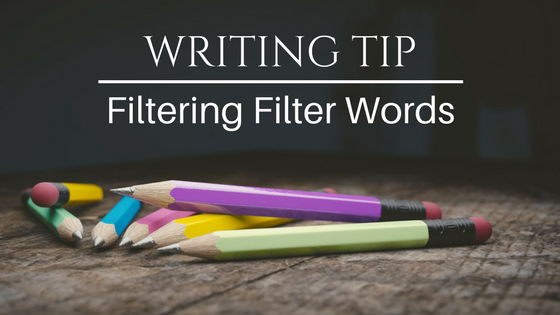Trap #8 - Filter Words
What are filter words and why do we want to avoid them?
Filter words filter the reader's experience through a character's point of view. They tend to distance a reader from your writing because they experience a scene second hand.
Common examples of filter words:
· to see
· to hear
· to think
· to touch
· to watch
· to look
· to feel (or feel like)
· can
· to sound (or sound like)
So let's look at some examples:
The drops felt cold on Rena's skin as she walked through the rain.
Here, Rena's experience is relayed secondhand. Yet, the reader would rather become so involved that he/she becomes part of the action. With a few tweaks, we can strengthen the sentence.
The freezing raindrops pricked on Rena's bare arms like little needles as she slogged through the dark.
This sentence amplifies the sensory impact and connect the reader much better to the action.
Popular advice recommends to include all five senses in your writing whenever possible.
Not all sensory details are the same. Let's look at the following example:
Rena heard the front door closing, and she smelled alcohol, coming from the intruder. She could taste bile rising into her throat. She couldn't see much in the dark room, so she searched until she felt the handle of her father's umbrella.
Okay, the paragraph reflects all five senses, but we can do better. Look at the underlined words. They filter the events through Rena's perceptions. Let's consider a different version.
The hinges of the front door whined as the door fell shut. Someone-or something-shuffled through the darkness. The stench of alcohol flared Rena's nostrils before bitter bile settled in her throat. She had to find a weapon. Fumbling around, she wrapped her fingers around the comforting handle of her father's umbrella.
The second version replaces all filter words with active replacements. Rena hears shuffling, she smells alcohol, she tastes bitter bile, she sees darkness, and she feels the handle of her father's umbrella. The "or something", set off by em dashes, adds to the tension. The stench of alcohol leaves no doubt that the odor is unpleasant. Bitter bile settles in her throat-a more effective taste reference. All in all, a much better way to engage the reader.
Dialogue can make a difference!
Examples where dialogue can help.
Rena stared onto the still water. The lake looked deep.
This can be rephrased with dialogue to get rid of the filter:
Rena stared onto deep green surface of the lake. "Wow, how deep do you think it is?"
Here, dialogue is effective. Rena's question, together with the description of the deep green surface implies the lake is deep.
Rena heard the doorbell ring repeatedly. She looked out the window and saw the neighbor.
better:
Rena peeked outside the window, cupping her ears with her hands. "Will this annoying neighbor just go away?"
Here, a combination of body language and dialogue shows readers what Rena experiences, without using a single filter word.
So the next time you write, watch out for those pesky little filter words which can really mess with the reading experience. Your audience will be thankful :)

Bạn đang đọc truyện trên: AzTruyen.Top